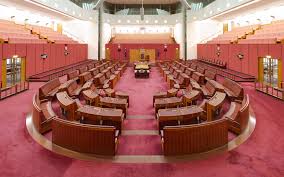-
Australian election sees more climate-ambitious government come to power
Date posted:
-
-
-
Post Author
Patrick LaveryCombustion Industry News Editor
-
-

Australia’s federal election has resulted in a change of government, with the centre-left Labor Party taking over power from the centre-right coalition of the Liberal and National parties, in what is being called the ‘climate change election’.
The Liberal-National coalition, which somewhat reluctantly set a net-zero by 2050 target in the run-up to the COP26 climate conference in November last year, had a 2030 target of a reduction of greenhouse gas emissions of 26-28% from 2005 levels, and tended to shy away from the issue during the election campaign, while the Labor Party had a more ambitious target of a 43% reduction, and gave somewhat more coverage to the policy area.
Most interesting, however, was that many solidly Liberal seats were lost to high-profile independent candidates that ran on campaigns with climate at the forefront of their agendas, typically with a target of a 60% reduction in GHG emissions by 2030. With a steep drop in the number of Liberal Party seats, the party may be forced to reinvent itself on climate in order to return to power at any future election. In the city of Brisbane for example, where high-profile independents were not running, the Greens party won seats for the first time in their history.
Part of the change of heart by voters has been a series of severe natural disasters that the country has experienced since the last federal election, including the 2019/20 bushfires and flooding on the east coast earlier this year, although part, too, could be an embrace of ‘climate friendly’ technologies such as electric cars, which have become commonplace in wealthy inner-city areas. There is now speculation that the Labor Party will strengthen its climate targets to secure the support of the independents (and the Greens) in the Senate so as to be able to pass legislation more easily during its term in power.
The Greens have already stated that they wish for an end to any additional gas or coal projects, but this is difficult to imagine, especially for gas. Stronger targets will come with their own risks, with Australia being a major fossil fuel exporter, and there being a significant minority of people whose livelihoods rely on those industries (or on agriculture) or who are tired of hearing about climate change from people in the cities.
